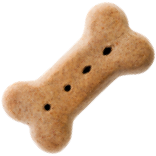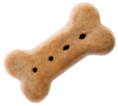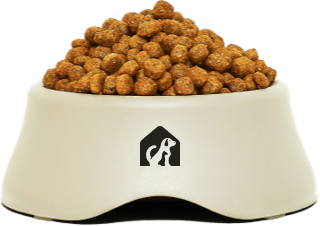Essential Nutritional Tips for Dogs with Allergies
When your furry friend starts itching, sneezing, or showing signs of digestive upset repeatedly, allergies may be the culprit. Just like humans, dogs can suffer from a range of allergic reactions, many of which are directly linked to their diet. Understanding what to feed your dog and what to keep out of their bowl is crucial for managing these allergies effectively. In this blog, we’ll explore essential nutritional tips that can help alleviate symptoms and promote a happy, healthy life for your dog. By making informed choices about their diet, you can help ease their discomfort and enjoy more tail-wagging days together.
Understanding Dog Allergies
When it comes to dog allergies, it’s crucial to recognize common signs and pinpoint exactly what’s triggering them, whether it’s food-related or from the environment. Knowing what to look for and the root cause of these allergies can vastly improve your pet’s quality of life.
Common Signs and Symptoms
Dog allergies manifest through various symptoms, which can greatly affect their comfort and health. The most common signs to watch out for include incessant scratching, skin rashes or hives, sneezing, watery eyes, and chronic ear infections. Gastrointestinal issues such as vomiting or diarrhea are also frequent indicators of food allergies. A dog showing these signs should prompt a vet visit to determine the underlying cause and to develop a treatment strategy that might include dietary adjustments.
Identification of Food Allergies vs. Environmental Allergies
Identifying whether your dog’s allergies are food-related or environmental requires careful observation and sometimes diagnostic tests. Food allergies are often identified through an elimination diet, where the dog is fed a very simple diet of foods it has never eaten before, and new ingredients are introduced gradually to detect which cause a reaction. Alternatively, environmental allergies could be confirmed through skin or blood tests, pinpointing reactions to common allergens like pollen, dust, or mold. Understanding the type of allergy is pivotal in managing symptoms and improving the overall health of your dog.
Importance of Proper Nutrition for Dogs with Allergies
The role of a balanced diet in managing allergy symptoms cannot be overstated. A correct nutritional plan not only helps with immediate symptom management but can also fortify your dog’s immune system, aiding in long-term health.
Impact of Diet on Allergy Symptoms
A tailored diet can substantially lessen the severity of allergy symptoms. For dogs with food allergies, avoiding allergens is key; this often means no beef, chicken, or dairy, as these are common triggers. Incorporating ingredients like novel proteins or hypoallergenic foods can be beneficial. Foods rich in omega-3 fatty acids, like fish oil, can help reduce inflammatory responses related to allergies. Additionally, a balanced diet that avoids filler ingredients, artificial colours, and preservatives helps minimize the risk of exacerbating allergies.
Key Nutrients for Supporting Canine Immunity
Ensuring your dog receives key nutrients is essential for maintaining a strong immune system and fighting allergies. Here are a few vital nutrients:
- Omega-3 Fatty Acids: These are anti-inflammatory and help control the eruptions from allergic reactions.
- Antioxidants (Vitamins E and C): These reduce oxidative stress and inflammation, which improves immune health.
- Probiotics: These beneficial bacteria support gut health, where a significant portion of the immune system is housed, making your dog better equipped to handle allergens.
- Prebiotics: These fibre compounds feed the beneficial bacteria in the gut, aiding the probiotics in doing their job effectively.
By focusing on these nutritional fundamentals, you can not only manage the immediate discomfort caused by your dog’s allergies but also build a stronger base for their overall health and wellbeing.
Foods to Avoid for Dogs with Allergies
Common allergens in dog food
Identifying and eliminating common food allergens is crucial in managing allergic reactions in dogs. Some of the top offenders include beef, dairy, wheat, egg, chicken, lamb, soy, pork, rabbit, and fish. Dogs, much like humans, can develop allergies to foods that they’ve been exposed to frequently. Other potential allergens are additives and artificial colors found in commercial dog foods, which may exacerbate allergy symptoms like itching, skin rash, and gastrointestinal problems.
Ingredients to watch out for on labels
When shopping for dog food, it’s essential to scrutinize labels to ensure the ingredients do not include common allergens. Avoid foods that list generic ingredients like “meat meal” or “animal fat,” as these can originate from multiple sources, making it difficult to identify potential allergens. Look for food with clearly defined protein sources, such as “duck” or “pea protein.” Be wary of filler ingredients like corn, wheat, and soy, which are not only common allergens but also offer little nutritional benefit and could trigger allergic reactions.
Recommended Diet for Dogs with Allergies
Hypoallergenic dog food options
For dogs with allergies, switching to a hypoallergenic diet can be a game-changer. These foods are specifically formulated to reduce allergenic potential by using novel protein sources or hydrolyzed proteins, where the protein molecules are broken down into smaller pieces that are less likely to trigger an immune response. Examples of novel proteins include venison, duck, and kangaroo. Always consult with a veterinarian before transitioning your dog to a hypoallergenic diet to ensure it meets all their nutritional needs.
Homemade dog food recipes for allergies
Preparing homemade meals for your allergic dog allows you to control the ingredients and avoid potential allergens completely. Simple recipes include a single protein source like salmon or turkey, combined with easily digestible carbohydrates such as sweet potatoes or pumpkin. Additionally, adding green leafy vegetables like spinach or kale can provide necessary vitamins and minerals. Remember, balance is key in homemade diets, so consult your veterinarian to ensure your recipes meet your dog’s nutritional requirements.
Supplement recommendations for a balanced diet
Even with the best diet, allergic dogs might still require supplements to achieve optimal health. Essential fatty acids, such as omega-3 and omega-6, can help improve skin health and reduce inflammation. Probiotics are beneficial for maintaining gut health, especially important for dogs with food sensitivities. Other supplements like vitamin E and C can support the immune system. Always check with your vet before introducing any new supplements to your dog’s routine to avoid any adverse interactions with their current diet.
Allergy Testing and Consultation with a Veterinarian
Importance of professional guidance
When dealing with allergies in dogs, it is crucial to seek guidance from a professional. A veterinarian can provide insights into what may be causing the allergic reactions and suggest appropriate tests or treatments. They will likely take a detailed health history, which helps in identifying any patterns related to food intake and symptoms. Remember, each dog is unique; what works for one might not work for another. Consulting a vet ensures that the approach to managing allergies is safe and specifically tailored to your dog’s needs.
Different types of allergy testing are available
There are several types of allergy tests that veterinarians might recommend to identify the substances that trigger reactions in your dog. Skin tests, where a small amount of potential allergens is introduced to the skin, can identify environmental and some food allergies. Blood testing, another common method, checks for antibodies against different allergens in the dog’s blood and can be particularly useful for detecting food sensitivities. Another approach could be an elimination diet, where the dog is fed a simple diet of foods that they have not eaten before, and new foods are then introduced gradually to identify potential triggers.
Tips for Managing Dog Allergies Through Diet
Gradual introduction of new foods
When introducing a new food to your dog’s diet, especially if they have shown signs of allergies, it’s essential to do so gradually. Start by incorporating small amounts of the new food mixed with their current food. Gradually increase the proportion of the new food over several weeks while monitoring their reactions. This slow process not only helps in identifying any new allergies but also eases their digestive system into accepting different foods without causing discomfort.
Monitoring your dog’s reaction to new foods
As you introduce new foods to your furry friend, keen observation is necessary. Look for signs of allergic reactions such as itching, excessive grooming, skin rashes, or gastrointestinal problems like vomiting or diarrhoea. These symptoms can appear within a few minutes to several hours after consumption. Keeping a detailed food diary noting what foods are eaten and any subsequent reactions can be incredibly helpful in pinpointing what foods are safe and which are not. This record will also be extremely useful when consulting with your veterinarian.
Maintenance tips for long-term allergy management
Managing a dog’s allergies is an ongoing process. Here are some tips to keep in mind for long-term management:
- Stay consistent with the diet that works. Once you identify a diet that does not trigger your dog’s allergies, stick to it.
- Regular check-ups with the vet are essential to adapt the diet as needed and to ensure that no new allergies are developing.
- Consider hypoallergenic dog food brands that are specially designed to reduce allergic reactions.
- Keep a close eye on any accidental exposures to allergens, especially when outside or while interacting with other pets.
By taking these steps, you can help manage your dog’s allergies effectively, allowing them to live a happy and more comfortable life.
Final Thoughts
Dealing with a dog’s allergies through nutritional management can often feel like navigating a minefield. However, armed with the right knowledge and a careful approach, you can significantly alleviate your furry friend’s symptoms. Always remember, each dog is unique, and what works for one may not work for another.
Implementing any of the above strategies should be a proactive and informed choice. Remember to consult with your vet regularly and monitor your dog’s response to the new diet. By staying vigilant and adaptable, you can provide the best possible care, ensuring your dog leads a happy, healthy, and itch-free life!





60% of new pet parents lack accurate pets dietary needs
Get the Smart Bowl AI Bowl, and start monitoring your pets food intake
Related Posts
75% of dogs exhibit signs of separation anxiety when their owners are away
We love our furry friends and want nothing but the best for them, but did you know that 75% of dogs show signs of separation
How Technology is Transforming Pet Healthcare and Wellness
Let’s face it—our furry companions are more than just pets; they’re family. And just like any family member, we want them to be healthy and
Best Practices for Remote Pet Care and Monitoring
Gone are the days when caring for a pet meant being home 24/7. Thanks to technology and some clever innovations, pet parents can now monitor
Sustainable Pet Food Options for Eco-Conscious Pet Owners
Cheers to you for choosing the greener side of pet parenting! If you’re an eco-conscious pet owner looking to align your furry friend’s diet with
Expert Tips for Dealing with Common Puppy Behavioral Issues
Welcoming a new puppy into your home is like injecting a daily dose of joy into your life. But, let’s face it, puppies come with
Top 5 Leading Causes of Death in Dogs
When it comes to the health of our canine companions, most of us are vigilant about vaccinations and regular vet check-ups, but we may not

